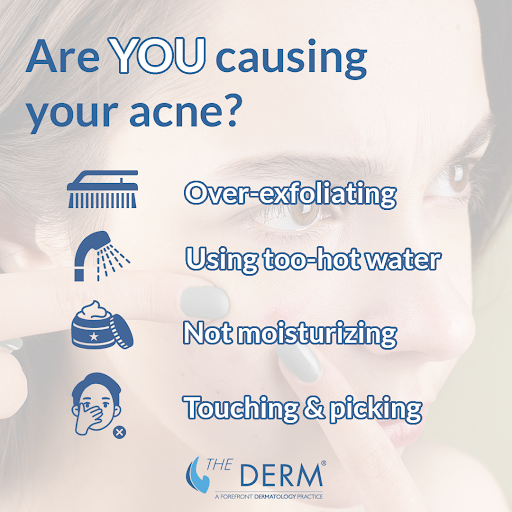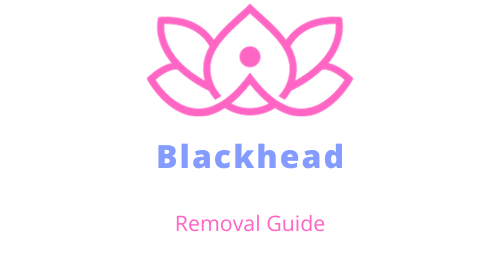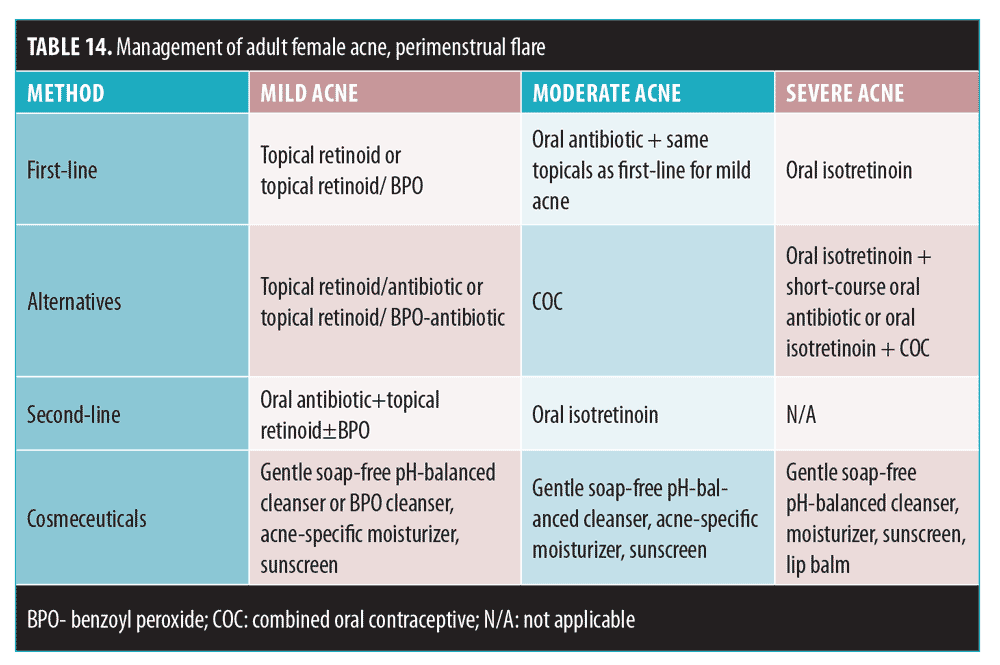Best practice for acne treatment involves a consistent skincare routine and consulting a dermatologist. Over-the-counter topical medications with benzoyl peroxide or salicylic acid are often recommended.
Acne can be a persistent condition affecting people of all ages, but managing it effectively is possible with the right approach. Establishing a daily skincare regimen tailored to your skin type is essential. Gentle cleansing, avoiding harsh skin products, and never picking at pimples prevent aggravation and potential scarring.
For those with more severe cases, prescription medications such as retinoids or antibiotics may be necessary. Lifestyle factors, including diet, stress management, and adequate sleep, also play a significant role in acne control. It’s crucial to avoid common misconceptions about acne, like the idea that it’s caused by dirty skin or that sun exposure will clear it up. Instead, a balanced combination of professional advice and self-care can lead to clearer skin.
The Acne Conundrum
Acne isn’t just a few spots on the skin; it’s a puzzle that affects many. People of all ages struggle with this skin condition. It can be confusing to know which treatment works best. Let’s explore the impact and causes of acne to find solutions that work.
The Impact Of Acne On Daily Life
Acne can make daily life tough. It’s not just about skin. It can hurt self-esteem and confidence. People with acne might avoid photos or social events. They may even feel anxious or depressed.
- Work and school: Acne can distract you from focusing.
- Social life: You might skip hanging out with friends.
- Mental health: Acne can lead to stress and sadness.
Types And Causes Of Acne
Different types of acne come from various causes. Things like hormones, stress, and oily skin play a role. Even the things you eat can affect your skin.
| Type of Acne | Common Causes |
|---|---|
| Whiteheads | Clogged pores |
| Blackheads | Oils and dead skin |
| Pustules | Inflammation or infection |
| Cysts | Hormonal changes |
Knowing your acne type helps you choose the right treatment. A skin doctor can help you understand your skin better.
Skin Science 101
Embark on a journey to understand the fundamentals of skin health and acne management. Grasping the basics can lead to effective acne treatment practices. Let’s dive into the science behind your skin and uncover how to combat acne with knowledge and best practices.
Understanding Your Skin Type
Knowing your skin type is crucial for choosing the right acne treatment. Skin types vary from oily, dry, combination to sensitive. Each type reacts differently to products and environments.
- Oily skin often has a shiny appearance and may develop more acne due to excess sebum.
- Dry skin feels tight and may flake, needing gentle, hydrating care.
- Combination skin features areas of both dryness and oiliness.
- Sensitive skin requires special attention as it easily gets irritated.
Identify your skin type with simple tests or consult a dermatologist for advice.
How Acne Develops
Acne starts when hair follicles become blocked with oil and dead skin cells. This creates an ideal environment for bacteria to grow.
| Step | Process |
|---|---|
| 1 | Sebaceous glands produce oil. |
| 2 | Skin sheds dead cells. |
| 3 | Oil and cells clog pores. |
| 4 | Bacteria grow and cause inflammation. |
Understanding this process aids in selecting treatments that target these steps, such as exfoliants for dead skin, and products to reduce oil and bacteria.
Daily Skincare Regimen
A Daily Skincare Regimen is essential for combating acne effectively. Good skin care habits can help prevent breakouts, reduce scarring, and promote overall skin health. The key steps include cleansing, moisturizing, and exfoliation. Each step serves a specific purpose in nurturing and maintaining clear skin. Let’s explore these critical steps in detail.
Cleansing: The First Step To Clear Skin
Cleansing is the cornerstone of any skincare routine. It removes dirt, oil, and impurities from the skin’s surface, preventing clogged pores. Use a gentle, non-comedogenic cleanser twice a day. Here’s how to cleanse effectively:
- Choose a mild cleanser that doesn’t strip your skin of its natural oils.
- Wash your face using lukewarm water to open pores.
- Gently massage the cleanser in a circular motion.
- Rinse thoroughly and pat dry with a clean towel.
Moisturizing: Balancing Skin Hydration
Moisturizing is crucial, even for oily skin. It helps maintain the skin’s natural barrier and prevents overproduction of oil. Here are some tips for effective moisturization:
- Select a lightweight moisturizer that is oil-free and non-comedogenic.
- Apply moisturizer while your skin is still damp to lock in hydration.
- Avoid heavy creams that can clog pores and worsen acne.
Exfoliation: Removing Dead Skin Cells
Exfoliation is the process of sloughing off dead skin cells to reveal fresher, brighter skin. However, over-exfoliation can irritate acne-prone skin. Follow these guidelines:
- Use a gentle exfoliant once or twice a week.
- Opt for chemical exfoliants like salicylic acid that are effective yet gentle on acne.
- Avoid harsh scrubs and brushes that can cause micro-tears and aggravate acne.
Topical Treatments
Topical treatments are creams, gels, and lotions you put on your skin. They help fight acne right where it starts. Many options exist, each with different ingredients to tackle various acne concerns. Let’s explore some of the most effective ones.
Benzoyl Peroxide: The Bacteria Buster
Benzoyl peroxide is tough on acne-causing bacteria. It removes dead skin cells too. This prevents pores from clogging. Here’s how to use it:
- Start with a lower concentration to avoid irritation.
- Apply a thin layer to the affected area after cleansing.
- Use once daily, then gradually increase as your skin adjusts.
Note: Benzoyl peroxide can bleach fabrics. Use white towels and pillowcases to avoid stains.
Retinoids: The Skin Renewers
Retinoids, like adapalene, are vitamin A derivatives. They speed up cell turnover. This helps prevent pimples. Here’s the best way to use them:
- Apply at night, as sunlight can reduce effectiveness.
- Use a pea-sized amount for the entire face.
- Be patient, as results can take several weeks.
Remember: Retinoids can make skin sensitive. Always wear sunscreen during the day.
Salicylic Acid: The Pore Purifier
Salicylic acid dives deep into pores. It breaks down the gunk that causes acne. Here’s how to incorporate it into your routine:
- Look for products with 2% salicylic acid for best results.
- Apply to clean skin, focusing on problem areas.
- Use consistently for ongoing pore purification.
Tip: Salicylic acid can be drying. Start with every other day application.
Oral Medications
Oral medications play a key role in acne treatment, especially for moderate to severe cases. They work from the inside to clear the skin and prevent future breakouts. Different types of oral medications target acne in various ways. Some reduce inflammation, while others fight bacterial infection or decrease oil production. Let’s explore some effective oral acne treatments.
Antibiotics: Fighting Infection From Within
Antibiotics are often prescribed to tackle acne. They target bacteria that contribute to acne development. Tetracycline, doxycycline, and minocycline are common choices. It’s important to use them correctly to avoid antibiotic resistance.
- Short-term use: Prescribed typically for a few months to reduce bacteria and inflammation.
- Combine with topical treatments: Works best alongside creams or gels for improved results.
- Follow your doctor’s advice: Never take more or less than the prescribed dose.
Isotretinoin: A Potent Solution For Severe Acne
Isotretinoin, known by its brand name Accutane, is a powerful drug for severe acne. It dramatically reduces oil production, fights inflammation, and helps to unclog pores.
| Benefits | Considerations |
|---|---|
| Clears severe acne | Requires careful monitoring |
| Can lead to long-term remission | Potential for serious side effects |
| Improves skin texture | Strict pregnancy avoidance |
Patients need monthly doctor visits and tests. Birth control is a must for women, due to high risk of birth defects.

Credit: thederm.com
Lifestyle Adjustments
Clear skin starts with how we live each day. Lifestyle adjustments play a key role in fighting acne. What we eat and how we deal with stress affect our skin. Let’s explore simple changes for a clearer complexion.
Diet And Nutrition: Foods To Favor And Avoid
Eating right can help manage acne. Certain foods may trigger breakouts. Others could help your skin heal. Here’s what to keep in mind:
| Foods to Favor | Foods to Avoid |
|---|---|
| Fresh fruits and vegetables | Greasy, fried foods |
| Whole grains | High-sugar snacks and drinks |
| Lean proteins like fish and chicken | Dairy products |
| Nuts and seeds | Refined carbs like white bread |
Stay hydrated with water and green tea. They help flush out toxins.
Stress Management: Reducing Acne Flare-ups
Stress can cause acne to worsen. Keeping stress in check is vital. Try these tips:
- Regular exercise boosts blood flow and mood.
- Enough sleep lets your skin repair overnight.
- Practice mindfulness or meditation to calm the mind.
- Make time for hobbies you enjoy.
Remember, self-care is not selfish. It’s essential for healthy skin.
Advanced Treatments
Advanced treatments for acne go beyond the basics of cleansers and creams. These powerful options can offer significant improvements. They target the deeper layers of the skin. They attack acne at its root. Let’s explore some of the cutting-edge procedures that can help achieve clearer skin.
Chemical Peels: Accelerated Exfoliation
Chemical peels remove dead skin cells fast. They use safe acids. These acids peel off the top layer of skin. It unclogs pores. It also fades acne scars.
- Glycolic acid for mild peeling.
- Salicylic acid for oily skin.
- TCA peels for deeper exfoliation.
Peels can be mild or strong. A dermatologist can choose the best one for your skin.
Laser Therapy: Targeting Acne At The Source
Laser therapy uses light to heal acne. It kills bacteria. It shrinks oil glands. This reduces oil and future breakouts. Lasers can also lessen acne scars.
| Type of Laser | Benefits |
|---|---|
| ND:YAG Laser | Deep cleansing of pores |
| Pulsed Dye Laser | Reduces redness and inflammation |
| Diode Laser | Treats oil glands to prevent acne |
Choose a certified skin specialist. They know how to use lasers safely. They can give you the best results.

Credit: www.sciencedirect.com
Navigating Home Remedies
Navigating Home Remedies for acne treatment can feel like walking through a maze. With so many suggestions from friends, family, and online sources, it’s tough to know what will truly help your skin. But don’t worry. This guide aims to shine a light on natural solutions that work and dispel common myths and misconceptions.
Natural Solutions: What Works?
- Tea Tree Oil: A drop on a cotton swab applied to the affected area can reduce inflammation.
- Aloe Vera: Known for its soothing properties, it helps heal the skin when applied directly.
- Honey and Cinnamon Mask: Mix these to create an anti-inflammatory mask for occasional use.
Consistency is key with these remedies. Patience is also crucial, as natural solutions may take time to show results.
Myths And Misconceptions
| Myth | Truth |
|---|---|
| Toothpaste dries out pimples | It can irritate the skin. Stick to products meant for acne. |
| Scrubbing skin clears acne | Over-scrubbing can lead to more irritation and worsen acne. |
| Sun exposure clears up blemishes | Too much sun can damage skin and lead to more problems. |
Remember, not all popular advice is good advice. It’s important to research and consult with a dermatologist when in doubt.
Building Your Acne Battle Plan
Launching an offensive against acne requires a solid strategy. It’s not just about applying creams and hoping for the best. It’s about creating a personalized game plan to tackle the root causes of acne and prevent future breakouts. Your skin is unique, and your approach to fighting acne should be too. Let’s chart out the best practices to establish your own acne battle plan.
Consulting A Dermatologist
Before you declare war on acne, seek guidance from a skin expert. A dermatologist can identify what kind of acne you have. They can suggest the most effective treatments. This could include medications, lifestyle changes, or both. They can also rule out any underlying conditions that might be causing your breakouts.
Personalizing Your Treatment Strategy
Your skin is as individual as you are. That’s why one-size-fits-all solutions don’t work for everyone. Personalization is key in your acne treatment plan. Take note of how your skin reacts to different products and treatments. Adjust your routine based on what works and what doesn’t. Keep in mind that any treatment plan may take several weeks to show results. Be patient and consistent for the best outcome.
| Step | Action | Expected Outcome |
|---|---|---|
| 1 | Wash your face twice daily with a gentle cleanser. | Reduce oil and dirt that can clog pores. |
| 2 | Apply acne-fighting topical treatments. | Target and diminish existing blemishes. |
| 3 | Moisturize with a non-comedogenic lotion. | Keep skin hydrated without causing more breakouts. |
| 4 | Protect your skin with sunscreen daily. | Prevent sun damage that can worsen acne scars. |
- Track your progress: Keep a diary of your skin’s condition.
- Adjust as needed: Change products if you see no improvement after 4-6 weeks.
- Be gentle: Avoid harsh scrubs or picking at pimples.
- Maintain a healthy diet: What you eat can affect your skin.
Maintaining Clear Skin
Maintaining clear skin is a goal for many people worldwide. Acne can be a persistent issue, but with the right strategies, keeping your skin clear is achievable. Let’s explore some essential best practices that can help you prevent acne and maintain the healthy glow of your skin.
Prevention: Strategies To Keep Acne At Bay
To prevent acne, it’s crucial to understand what triggers it. Factors such as diet, stress, and hygiene play significant roles. Here are tips to help keep your skin clear:
- Cleanse your skin twice a day with a gentle, non-comedogenic cleanser.
- Avoid touching your face to reduce the spread of bacteria.
- Use oil-free, non-acnegenic makeup and skincare products.
- Eat a balanced diet rich in fruits, vegetables, and lean proteins.
- Stay hydrated by drinking plenty of water throughout the day.
- Manage stress through activities like yoga, meditation, or exercise.
Routine Check-ups: Staying On Track
Consistent check-ups with a dermatologist can keep your acne treatment on track. Personalized advice from a professional is invaluable for maintaining clear skin. Here’s what to consider:
- Schedule regular appointments, even when your skin is clear.
- Discuss any skin changes or concerns with your dermatologist.
- Follow your prescribed treatment plan and adjust as advised.
- Ask about new treatments or products that might benefit your skin.
- Keep a skin diary to track your progress and any flare-ups.
:max_bytes(150000):strip_icc()/treating-teen-acne-in-boys-15939_final-0c6e3d03ed3a470d898250961e1cba71.png)
Credit: www.verywellhealth.com
Frequently Asked Questions
What Professional Treatment Is Best For Acne?
The best professional treatment for acne often includes topical retinoids, prescription-strength creams, and oral medications. Dermatologists may also recommend chemical peels, laser therapy, or corticosteroid injections for severe cases.
What Is The Best Management Of Acne?
The best management of acne includes maintaining a clean skin routine, using over-the-counter treatments like salicylic acid or benzoyl peroxide, and avoiding pore-clogging products. For severe cases, consult a dermatologist for prescription medication or therapies.
What Are The Best Acne Fighting Treatments?
The best acne treatments include salicylic acid, benzoyl peroxide, retinoids, and tea tree oil. Consult a dermatologist for severe cases.
What Procedure Is Best For Acne?
The best procedure for acne often includes a combination of topical treatments, oral medications, and lifestyle changes. Dermatologists may recommend benzoyl peroxide, retinoids, or antibiotics for targeted therapy. It’s essential to consult with a healthcare professional for personalized care.
Conclusion
Navigating the complex world of acne treatment can be challenging. Remember, consistency is key with any skincare routine. Opt for gentle products and consult a dermatologist for personalized advice. Embrace a holistic approach to health for the best results. Clear skin is within reach with the right practices in place.

